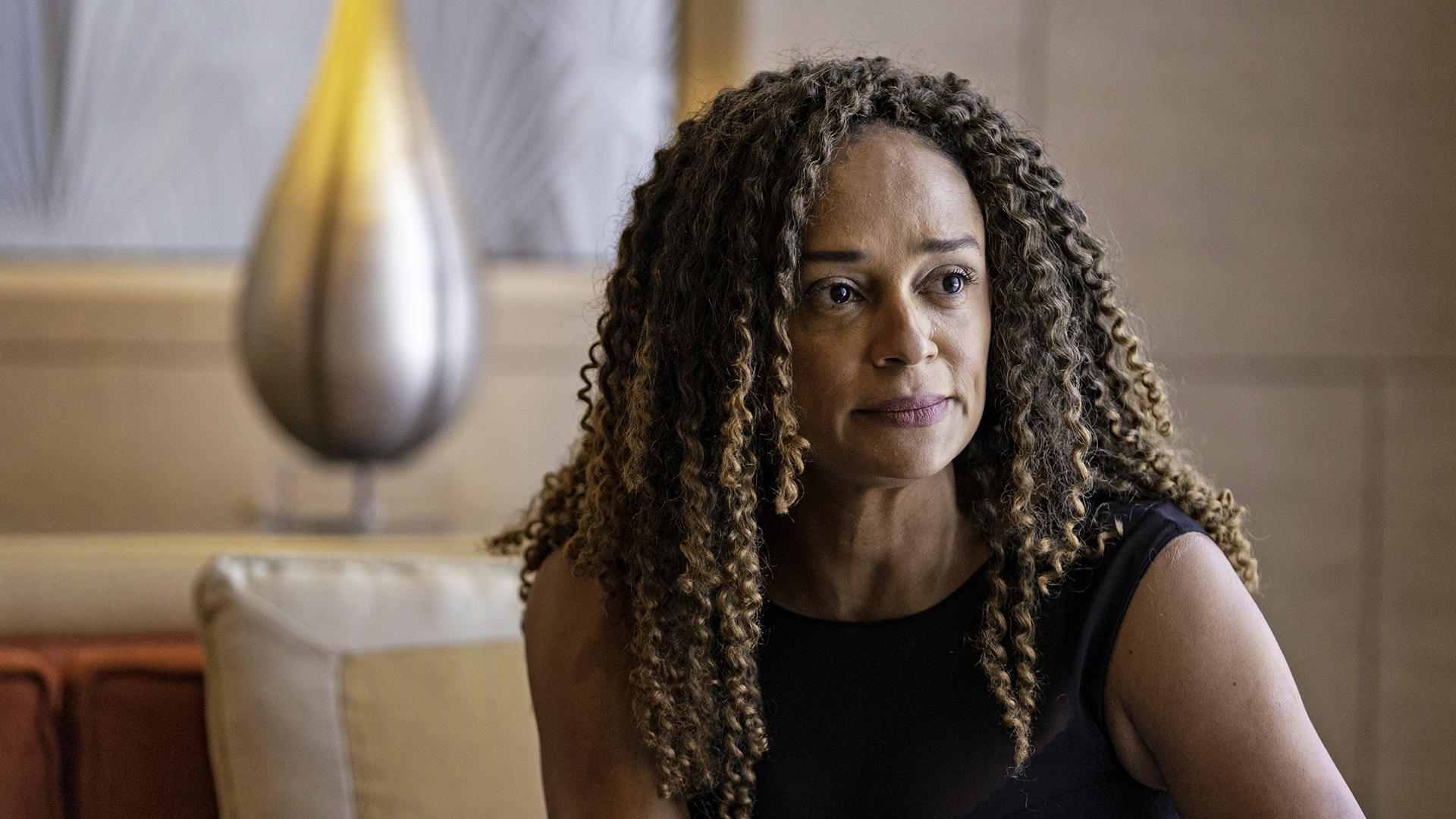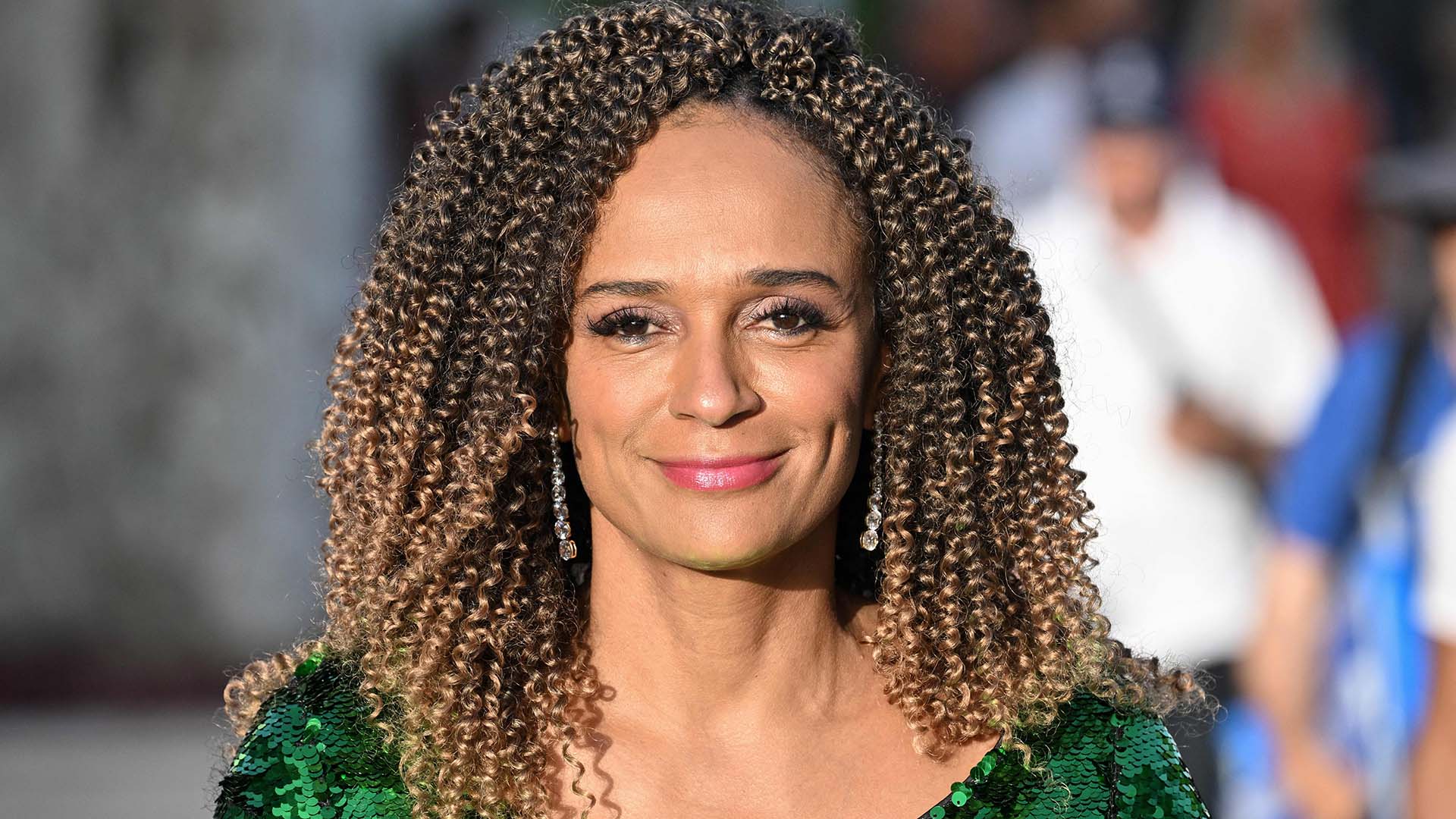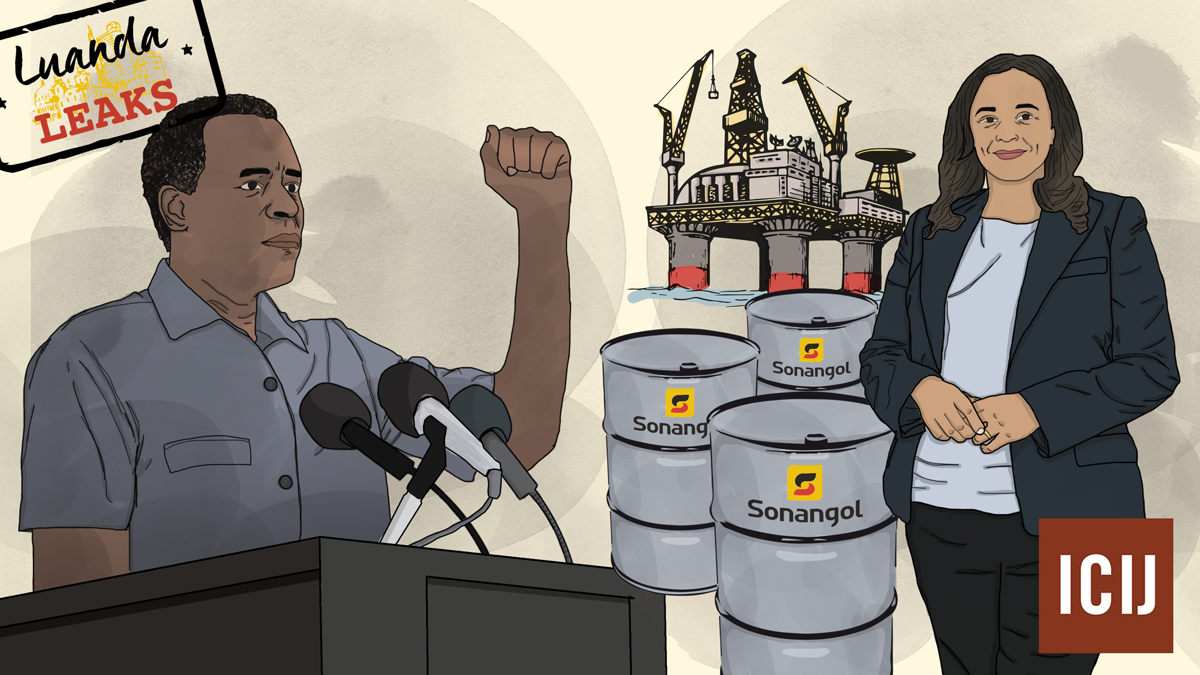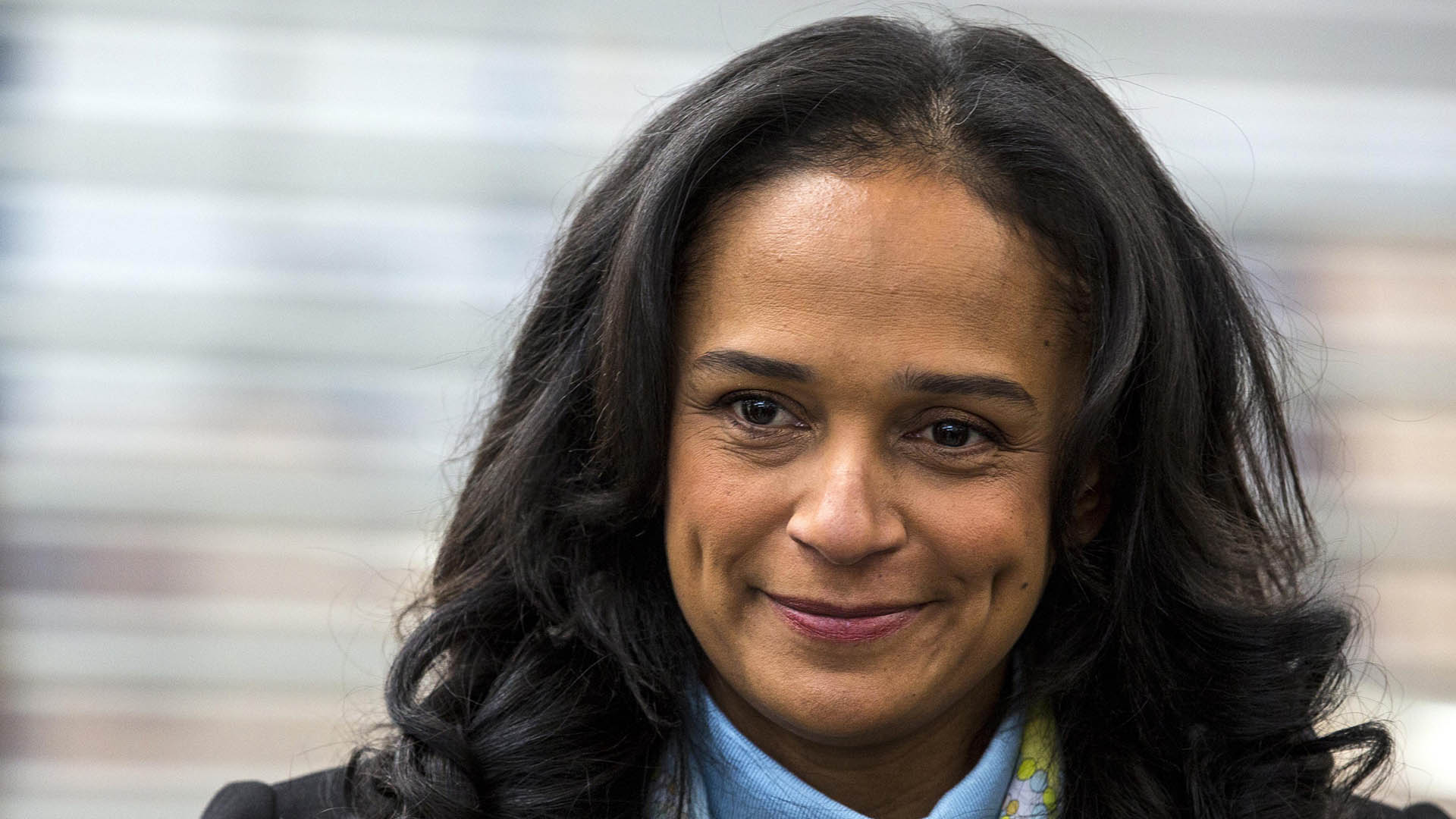REAL ESTATE
Defying Angola and Interpol, Isabel dos Santos entrenches herself on Dubai waterfront
The eldest daughter of Angola’s former autocrat has found cover in the United Arab Emirates, where she, her mother and a business associate are linked to multiple properties, Dubai Unlocked reveals.

Although Interpol has asked governments around the world to find and provisionally arrest Isabel dos Santos, the Angolan former billionaire is not hiding. Instead, she regularly posts about her lavish lifestyle at a Dubai residence on social media. Now, confidential land records connect dos Santos and her mother to other properties on the waterfront of the United Arab Emirates’ financial hub.
The eldest daughter of Angola’s former president, dos Santos came under scrutiny by authorities on three continents after the International Consortium of Investigative Journalists’ Luanda Leaks investigation revealed how lucrative deals obtained under her father’s rule helped her become Africa’s richest woman. Since 2019, courts in Angola, Portugal and other countries have issued orders to freeze her assets.
Despite that, Dubai has remained a safe haven for dos Santos.
View this post on Instagram
Newly leaked Dubai property data reviewed by ICIJ reveal that dos Santos and her mother, Tatiana “Kukanova” Regan, co-own a two-bedroom apartment in a building called Sadaf, Arabic for “seashell,” overlooking Dubai Marina on one side and the Persian Gulf on the other. The 31st-floor apartment was purchased in 2009 for nearly $163,000, and similar-sized units go for more than $570,000 today. Regan owns another unit in the same building, which she bought in 2017 for nearly $735,000. She has been leasing it as a rental property ever since, according to transaction data from Dubai.
Records linking owners to their properties were obtained by the Washington, D.C., nonprofit Center for Advanced Defense Studies (C4ADS) and shared with ICIJ and more than 70 media outlets as part of the Dubai Unlocked investigation coordinated by the Organized Crime and Corruption Reporting Project (OCCRP) and Norwegian financial outlet E24.
The property records at the heart of Dubai Unlocked come from multiple leaks totaling more than 100 datasets, mostly from the Dubai Land Department, plus publicly owned utility companies.
The new investigation by the International Consortium of Investigative Journalists and more than 70 media partners, led by the Organized Crime and Corruption Reporting Project, shows how one of the Middle East’s most exclusive real estate markets became a hot spot for ill-gotten wealth. The data was obtained by the U.S. nonprofit Center for Advanced Defense Studies and shared with Norwegian news outlet E24, then ICIJ and other partners.
Taken together, the leaked property records, mostly from 2020 and 2022, provide a detailed overview of hundreds of thousands of properties in Dubai and information about their ownership or usage. Economists at the EU Tax Observatory and Norway’s Centre for Tax Research who analyzed the data estimated foreign-owned residential properties in Dubai were worth $160 billion in 2022.
ICIJ and its partners used identifying information — such as names, nationalities, dates of birth and passport numbers — to confirm ownership. Reporters also obtained the deeds for some of the properties from the Dubai Land Department. A second tranche of property and transaction data from Dubai reveals additional information about the buying and selling of properties as well as rental incomes.
Dubai Unlocked is part two of a cross-border investigation into Dubai real estate purchased with illicit funds. ICIJ did not participate in part one of the project, Dubai Uncovered, published in May 2022.
The records reveal dozens of alleged criminals and political figures own or recently owned real estate in Dubai. While it is legal for politicians to buy property in Dubai, it can raise red flags if, for example, the cost is substantially greater than their income or they failed to list the property in their declaration of assets.
The revelations come on the heels of the UAE’s removal from the intergovernmental Financial Action Task Force “gray list” for facilitating money laundering and terrorist financing.
In response to questions sent in April, dos Santos said she acquired the Sadaf apartment for “personal use” using money she earned from her private companies and public appearances. She added that she has applied to challenge Interpol’s request for governments to provisionally arrest her, known as a red notice, because “it was issued with false information” by Angolan authorities.
“President Lourenco / Angolan authorities have a political motivated agenda against me and the Dos Santos family,” she wrote in an email. “They fabricate false evidence and do not allow the courts to be impartial and independent.”
Angolan prosecutors have rejected similar allegations by dos Santos as “unfounded.” The office of Angola’s attorney general Helder Pitta Gros did not respond to requests for comment on dos Santos’ presence in Dubai. Gros in 2020 said on Angolan public radio, “We will use all possible means and activate international mechanisms to bring Isabel dos Santos back to the country.”
Dos Santos’ mother, Regan, is the first wife of Angola’s former autocratic president José Eduardo dos Santos. Regan was born in Russia and is a citizen of the United Kingdom.
Regan worked at Angola’s state oil company Sonangol in the 1970s before divorcing her husband and moving with her daughter to London. The pair later controlled a Gibraltar company that had a 24.5% stake in Angola’s diamond monopoly Ascorp, according to U.K. court documents.
Regan did not respond to a request for comment.
The Dubai land records also contain information about Konema Mwenenge, a business partner of dos Santos’ late husband, Sindika Dokolo, and companies he’s associated with.
Mwenenge, the French executive of a Dubai-based diamond dealing firm, owned two side-by-side apartments in a luxury complex in Jumeirah Bay known as the Bulgari Resort and Residences. Dubai’s public Land Department website shows one of those flats now belongs to Equinox Holdings Ltd. In 2015, Mwenenge used the Dubai-based Equinox to loan more than $14 million to De Grisogono, dos Santos’ now-bankrupt jewelry company in Switzerland, according to Luanda Leaks documents.
According to the Dubai Land Department, the average rent for the unit should be between $294,000 and $359,000 per year, but rental information obtained by the collaboration shows that Equinox rents the apartment to dos Santos for about $40,800, or $3,400 a month.
Equinox also owns a handful of other units at the Bulgari Resort and Residences, including one that was bought in 2017 for just over $2.1 million, according to transaction data obtained by the collaboration. In 2020, ICIJ found that Dokolo and dos Santos listed that apartment as their residential address on corporate documents of a Maltese shell company they used to obtain a multimillion-dollar contract with Angola’s state oil company.
The investigative outlet Bellingcat found that dos Santos has been posting photos and videos from the building complex on social media. The posts show her dancing poolside and dining at extravagant restaurants despite legal cases against her in Angola, the United Kingdom and the Netherlands.
@isabel_dos.santos #TikTok ♬ Pagodão do Birimbola (Tchubirabirom) – Os Quebradeiras & Machadez & Mousik
Mwenenge did not respond to requests for comment.
In late 2022, Interpol issued the red notice for dos Santos. The UAE is a member country of Interpol, but it can decide whether or not to comply with the notice.
Under the UAE’s anti-money laundering law, authorities must “identify, freeze, seize or confiscate” illicit assets if the investigating country is “bound by an enforceable agreement with the UAE.” The UAE does not have any related agreements with Angola, nor does it have an extradition treaty with the West African country.
In a statement to ICIJ’s media partner The Times, an official with the UAE’s British embassy wrote, “The UAE takes its role in protecting the integrity of the global financial system extremely seriously” and that the country “works closely with international partners to disrupt and deter all forms of illicit finance.”
Earlier this year Angola’s prosecutors charged dos Santos with 12 crimes, accusing her of defrauding the country of $219 million during her time as the head of the state oil company. A London court also ordered a freeze on up to $733 million of her assets.
The indictment reiterates ICIJ’s reporting that linked dos Santos and her close associates to several Dubai shell companies that she used to divert millions of dollars from Sonangol, Angola’s state oil company, when she was its chairwoman in 2016 and 2017.
Jodi Vittori, a Georgetown University professor and illicit-finance expert, pointed to dos Santos’ residency in Dubai as an example of gaps in the UAE’s anti-money laundering enforcement.
“There hasn’t been substantial changes that I can see at least in actually aggressively going after those involved in illicit finance,” Vittori said.
Contributing reporters: Jérémie Baruch (Le Monde), Lars Bové (De Tijd), Eiliv Frich Flydal (E24), George Greenwood (The Times), Khadija Sharife (OCCRP).


